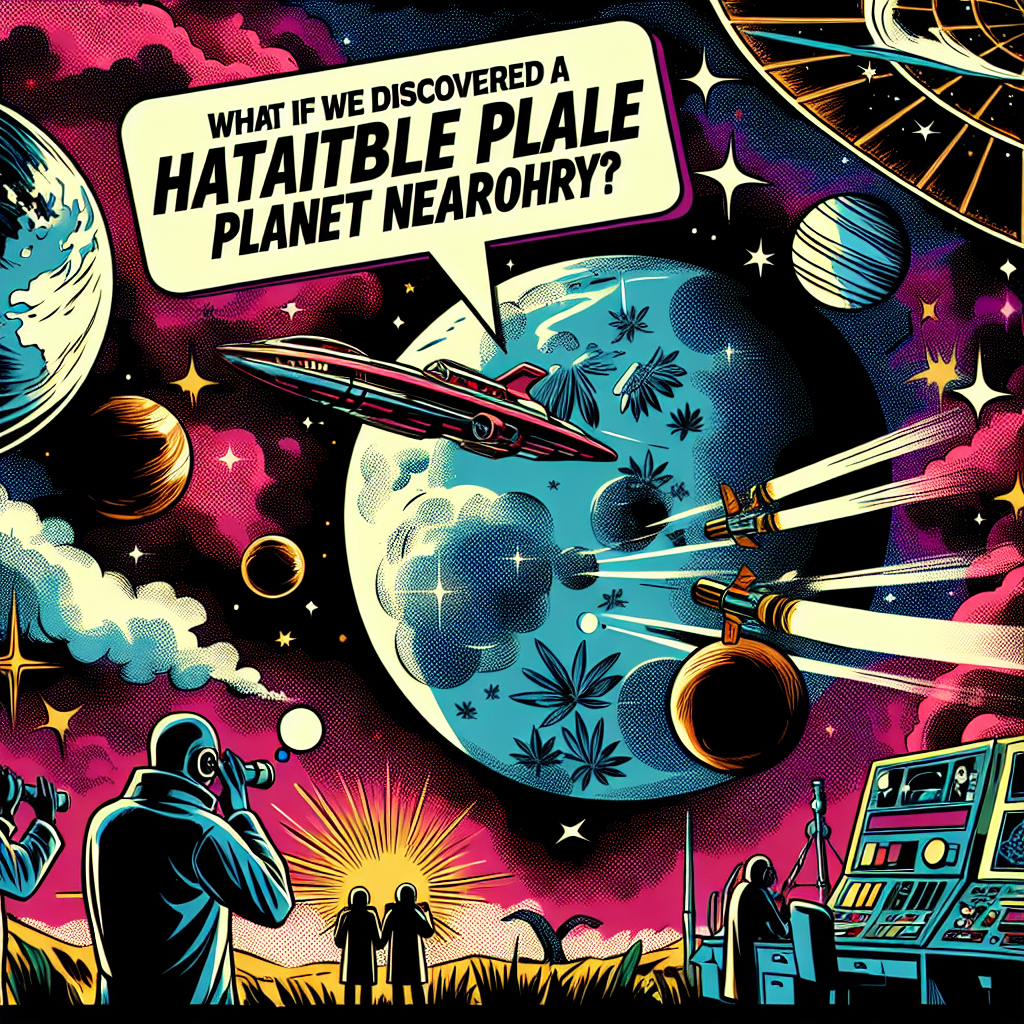The possibility of discovering a habitable planet nearby is a tantalizing one. Let's dive into what would make a planet habitable and what we might expect to find.
First, we need to define what makes a planet habitable. At its core, a habitable planet is one that can support life as we know it. This means the planet should have a stable atmosphere, liquid water, and an energy source, like sunlight or geothermal activity. Imagine a planet as a fancy coffee shop – it needs the right atmosphere (not too hot or cold), the right "brew" (water), and the right "buzz" (energy) to attract and sustain life.
Now, let's talk about the "nearby" part. In cosmic terms, nearby is a relative concept. Astronomers use a unit called light-years to measure distances between stars. A light-year is the distance light travels in one year, which is about 6 trillion miles. If we found a habitable planet just 10 light-years from Earth, that would be considered relatively close. To put it into perspective, the fastest spacecraft ever built, Voyager 1, has been traveling for over 40 years and has only covered about 0.000006% of the distance to the nearest star outside our solar system, Proxima Centauri.
So, what would make a planet habitable? Here are some key factors:
- Temperature: The planet's surface temperature should be between -10°C and 50°C (-14°F to 122°F), allowing for liquid water to exist. Think of it like the "Goldilocks zone" – not too hot, not too cold, but just right.
- Atmosphere: The planet needs an atmosphere that can trap heat, protect from harmful radiation, and support chemical reactions necessary for life. Imagine a cozy blanket that keeps the planet snug and comfortable.
- Water: Liquid water is essential for life as we know it. It's the universal solvent, facilitating chemical reactions and biological processes. Water is life's "special sauce."
- Energy source: A habitable planet needs an energy source, like sunlight or internal heat, to drive chemical reactions and sustain life. It's like having a perpetual power outlet to keep the lights on.
Now, let's imagine we've discovered a nearby habitable planet. What would we expect to find? Here are some possibilities:
- Biosignatures: Astronomers would search for signs of life, such as oxygen, methane, or other gases in the planet's atmosphere that could be produced by living organisms. It's like looking for a "Hello, Universe!" signal from an alien civilization.
- Geological activity: A habitable planet might exhibit geological activity, like volcanic eruptions or tectonic plate movement, which could indicate the presence of an energy source. It's like finding a planet-sized "engine" driving the geological machinery.
- Magnetic field: A strong magnetic field could protect the planet from harmful radiation, making it more habitable. Think of it as a cosmic "force field" shielding the planet from harm.
The discovery of a nearby habitable planet would be a groundbreaking finding, with far-reaching implications for the search for extraterrestrial life. It would also raise a plethora of questions, such as:
- Is the planet a terrestrial paradise, teeming with life, or a barren world struggling to support even the simplest organisms?
- Could we establish communication with any potential life forms on the planet?
- Would we attempt to send probes or even humans to explore this new world?
The discovery of a habitable planet nearby would be a game-changer, opening doors to new areas of research, pushing the boundaries of our understanding of the universe, and perhaps, just perhaps, revealing the existence of life beyond Earth.
In conclusion, the discovery of a habitable planet nearby would be a monumental find, holding immense scientific, philosophical, and societal significance. It would challenge our understanding of the universe, our place within it, and our role as guardians of life on Earth.

Popular Space Questions
Find answers to the trending space questions being asked by our community on social media.
- How many galaxies are there in the universe?
- What would happen if a rogue planet entered our solar system?
- How far is Pluto from Earth?
- How many planets are in the Milky Way?
- How big is the Earth?
- What are the planets in order?
- How many planets are in our solar system?
- How big is the universe?
- What would happen if a pulsar's beam hit Earth?
- What if we found a way to manipulate gravity?